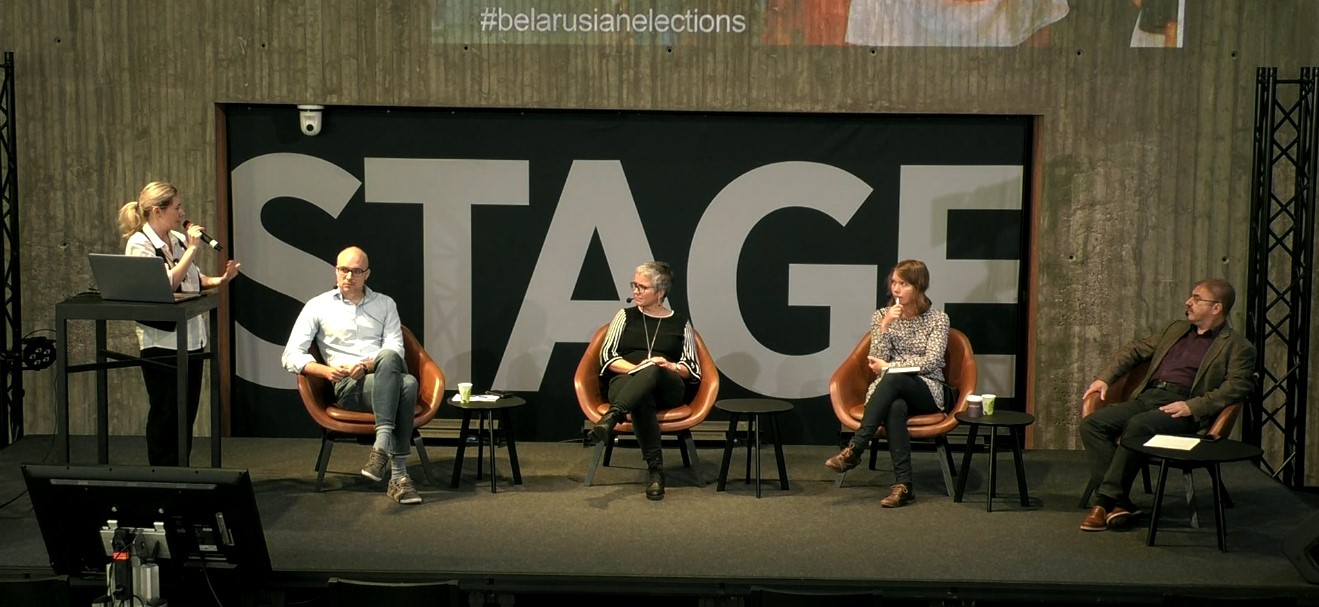
ElMaRB project and the Aleksanteri Institute organised on 1st of September the first event of the new study year – panel discussion “Belarusian election 2020: unexpected outcomes. What is happening and what is to come?”. For this timely event, we invited experts from political science and international relations fields: Ryhor Nizhnikau (Finnish Institute of Foreign Affairs), Vladimir Gel’man (Aleksanteri Institute, University of Helsinki), Kristiina Silvan (Finnish Institute of Foreign Affairs and University of Helsinki) and Katri Pynnöniemi (Aleksanteri Institute, University of Helsinki & National Defence University). The discussion was moderated by ElMaRB project leader Margarita Zavadskaya.
The event started with a brief introduction to the conflict from each expert. Ryhor Nizhnikau’s talk “Knight with rakes: the EU’s way and response to the crisis” dealt with European Union policy towards Belarus in recent years and its dissatisfying reaction to the ongoing events. The next speaker, Katri Pynnöniemi, in her talk “Russian strategic narratives and the crisis in Belarus” explained how the Kremlin applies the same “colour revolution” narrative they used with Ukraine during the Euromaidan and how the Kremlin sees the situation in Belarus in general. Kristiina Silvan, whose Doctoral dissertation is dealing with state youth activism in Belarus and Russia, spoke about the changing attitudes of the youth in her presentation ““From apathy to activism? Young people’s mobilization in 2020””. From the scarce poll data available and based on her research, Silvan revealed that the modern generation in Belarus becomes more politically active. What is interesting, however, is that during the current crisis the Belarusian Republican Youth Union had been rather inactive and did not refer to the protests in their social media channels. The last talk was Vladimir Gel’man’s ”Democratization by Mistake? The Limits of Authoritarian Strategies in Belarus”. Professor Gel’man focused on the problems Lukashenka’s regime faces in the aftermath of the fraudulent elections, how it deals with them, and what can be expected in the future.
The presentations were followed by a discussion with questions from the moderator Margarita Zavadskaya and the online audience. The covered themes included but were not limited to a comparison of the current protests with the recent Venezeualan, Armenian, and Ukranian contention and Russia’s response to them; the repertoire of protest action and its strengths and weakness; the shocking level of violence to which the law enforcement resorted and the loyalty of siloviki to Lukashenko; the role of COVID-19 in the weakening of Lukashenko’s support, and many other related issues. While the experts were rather careful and pessimistic in their assessments of the ongoing post-election protests, they all agree that the regime was significantly weakened by them, and if it withstands, it wouldn’t happen without Russia’s assurance of possible help.
The Belarusians continue to go on marches and strikes every day, and while it is not clear that the democratisation of Belarus will be the result of this contention, what is know for certain is that the citizens are ready for free and fair elections, and without them, there is no democracy.
The recording of the panel discussion is available on Tiedekulma’s website and will be soon published on the Aleksanteri Institute Youtube channel. In the meantime, our project continues to closely follow the post-election contention in Belarus and will be getting back to it in our future publications and events.
